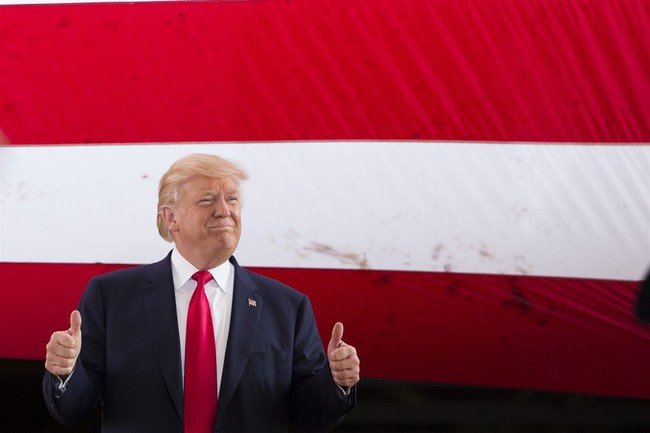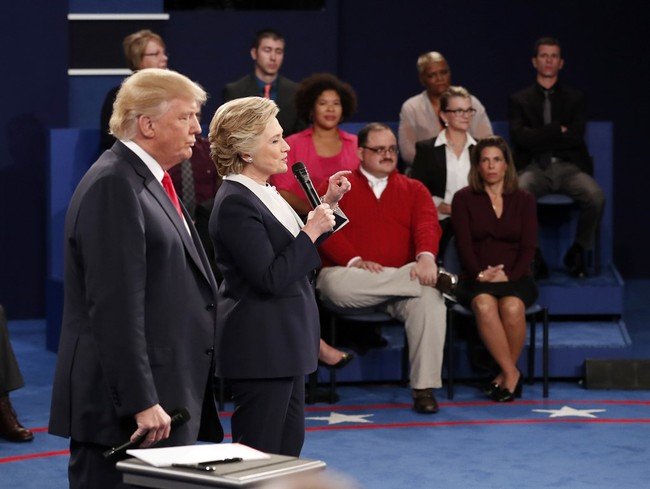by Lauren Jessop
The suppression of free speech on college campuses and the censorship of social media often spark debates about how far the First Amendment should extend to protect Americans’ right to speak their minds — and who should be entrusted with making such decisions.
About 53% of Americans believe the First Amendment goes too far in the rights it protects, according to a fresh poll from the independent organization Foundation for Individual Rights and Expression (FIRE).
This votewhich took place on July 5-10, is the latest edition National Speech Indexa quarterly survey developed by FIRE and the Polarization Research Lab at Dartmouth College to gauge public opinion on free speech.
The survey consists of 10 questions, five of which are constant and track support for free speech and the First Amendment over time, and five questions are rotating and are intended to gather public opinion on timely and newsworthy free speech issues.
“Of course, one in two Americans would like to have fewer civil liberties,” said Sean Stevens, FIRE’s chief research adviser. “Many of them reject the rights to assembly, a free press and to petition the government. That’s a dictator’s fantasy.”
The report further states that 69% of those surveyed believe the country is headed in the wrong direction regarding freedom of speech. Only 5% believe their rights are “completely” protected, while 12% believe they are “not at all” protected.
Some 65% of respondents have some level of trust in the government to fairly decide what speech is considered threatening or indecent. However, only 32% said they were “not at all” comfortable with the government restricting the freedom of speech of pro-Hamas protesters.
“Many Americans not only want to take a machete and crack down on the First Amendment, but it’s unclear whether they understand its limitations,” a FIRE official said. press releaseThe article also found that a majority of respondents said the spring pro-Palestinian campus protests should be allowed to continue on the grounds of freedom of speech.
The organization noted that while many protests were “lawful,” some included “tent camps, vandalism, and occupations of buildings” — which could not be justified under protections “in the name of free speech.”
“Americans have little tolerance for certain forms of protected speech and a high tolerance for unprotected conduct, when it should be the other way around,” Stevens said. “This study reveals that the state of free speech in America is abysmal.”
Pointing to previous research, Stevens told The Center Square that many Americans have little or no trust in the government to regulate free speech, but other data suggests many are willing to censor views they don’t like. They want someone to do it, but they don’t trust the government or social media companies to do it fairly, he said.
Stevens highlighted one encouraging result: There appears to be a occasional bipartisan agreement between Democrats and Republicans (61% and 52%, respectively) that they do not like the government regulating the speech of pro-Hamas protesters.
“I know what’s being said probably offends a lot of people,” he said. “But that’s a strong stance there on free speech.”
However, half of Democrats and only one-fifth of Republicans believe America is on the right track when it comes to free speech overall.
Other polling has focused on the camp protests and how campus administrations have responded to them. Stevens said the results show increased concerns about the state of free speech among liberals, progressives and people on the left compared with six months ago.
“There is now a greater awareness that their oxen are being harassed and they see that calls for censorship can just as easily be used against them,” he said.
Other findings show that the percentage of respondents who are “very” or “somewhat concerned about being fired over complaints about their speech dropped from 28% in April to 20% in July. They note that the survey was conducted before the assassination attempt on former President Donald Trump.
The number of people who self-censor “quite” or “very” often also dropped from 27% to 23%.
– – –
Lauren Jessop is a contributor Central Square.
Photo “Peaceful Protest” by Vlad Chompalov Chompalov.


